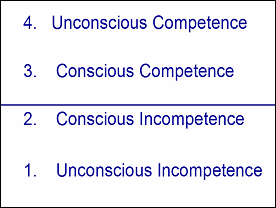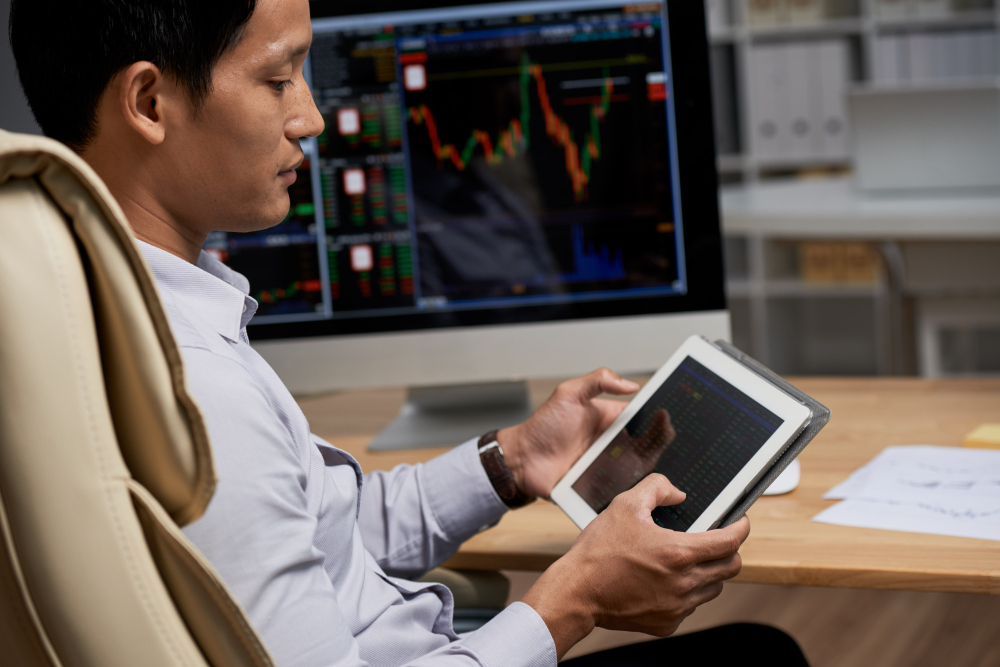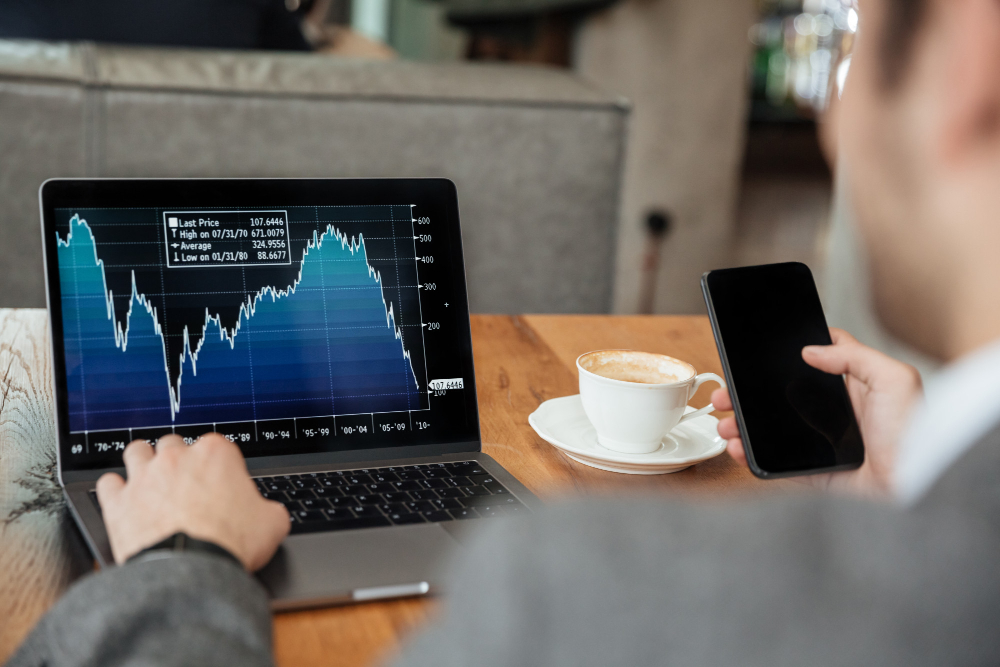Following on from the theme we have been discussing in the past 2 blogs on the differences between well recognised societal paradigms and how they differ from a market paradigm, let’s move on to discuss the development of trading competence. This topic will feature over the next 4 weeks as we examine the 4 stages of competency development with respect to trading.
Recognising where you are at in terms of your level of competence as a trader or active investor is very important if you are to continue to learn, develop and grow as a trader and in your personal life. Many beginner traders dive head first into the market full of confidence and ego, but with very little real understanding of how the market works, and with little in the way of skill or knowledge. Whilst full of bravado and convinced that they will make their fortune trading, they have not fully developed the skill set and mental paradigms that are necessary for long term success in the markets.
When acquiring any skill, whether in trading shares or cooking an omelette, there are typically four stages of learning that an individual needs to go through to attain the highest level of competence. The starting level is Unconscious Incompetence and the final level is Unconscious Competence. These 4 levels are shown in the table below.

At the first level, that of Unconscious Incompetence, the individual neither understands nor knows how to do something. With respect to trading, at this level the individual might understand how to place buy and sell orders. He or she may also have placed many trades and even have had a few winners; randomness will always produce a few winners.
This individual may read the financial pages of the dailies, might also know of websites which provide free tools to do research, may have subscribed to one or more of them, and may even belong to trading chat forums.
Now you might be thinking that knowing and doing this much would place you at a level higher than that of Unconscious Incompetence. However, trading competence is measured by a steadily rising equity curve in one’s portfolio or portfolios that outperforms alternative investment avenues and the market indices. Achieving a steadily rising equity curve should require little or no effort, struggle, strain or pain. Having the skills stated so far will not achieve a steadily rising equity curve let alone doing so with little or no effort, struggle, stain or pain.
In short, people at this level may know what to do but cannot do what they know.
That’s because Unconscious Incompetents have no system, no strategies and no plan. They dabble in the market, probably only place trades erratically and when they do it is usually in reaction to a share tip generated from the ‘noise’ brigade that surrounds the market: tips from friends, brokers, magazines, TV shows, newsletters, chat forums or newspapers. This is not to say that these tips won’t rise in price. The problem is that their buying opportunities come from outside influences rather than from inside strategies that are a part of their well-oiled plan. There is no structure or process. There are no exit strategies or position sizing rules.
At some stage, the pain of large loss trades, constantly missing the solid movers and an equity curve that is either going nowhere or heading south eventually causes the Unconscious Incompetent to give up or to do something about it.
Either of these responses is acceptable. The response that is unacceptable is an individual succumbing to the Dunning-Kruger effect—December 1999 Journal of Personality and Social Psychology (Vol. 77, No. 6). This is the phenomenon whereby people who have little knowledge systematically think that they know more than others who have much more knowledge. This is fatal in a zero-sum game like trading: what one individual loses another gains—the incompetent individual loses to the competent individual.
The Dunning-Kruger effect states that incompetent individuals:
• tend to overestimate their own level of skill,
• fail to recognise genuine skill in others,
• fail to recognise the extremity of their inadequacy.
Further, if they can be trained to substantially improve their own skill level, these individuals can recognise and acknowledge their own previous lack of skill.
A quote from Mark Twain made many years ago might have saved or motivated Messrs Dunning and Kruger’s research: “What gets us into trouble is not what we don’t know. It’s what we know for sure that just ain’t so.”
At this level, individuals don’t know what they don’t know. They believe what they do know is sufficient to be successful at what they are doing. Succumbing to the Dunning-Kruger effect is unacceptable because individuals do not give up; they continue to trade while remaining at the level of Unconscious Incompetence. And they continue to lose to those who are competent. The result is a transfer of wealth from the unprepared to the prepared. The goal for those at this level is to develop their level of competence.
Those who persevere and do something about it will probably move to the next level of skills acquisition and learning, that of Conscious Incompetence, Level 2 on the matrix of competence. Next week we will examine and discuss the characteristics of this level as it relates to the trading arena.



10 Responses
Oh dear. After all these years I’m still at the level of Unconscious Incompetence. I can’t wait to see how I can get past that.
It is very very true and remains me how I started to drive a car.Thank you for all your support. Looking forward to the next lesson.
Yes , after many years of trading , that’s me Unconscious Incompetence ,
Through my Unconscious Incompetnce I have ‘acquired’ a huge debt over the past 2 – 3 years. I am now at the second level and horrified at my previous ignorance. I have a big challenge ahead of me now!!!
If i didn’t know better,i would think you are discribing me.This first artical has been an eye opener and look forward to the next.
I reckon Donald Rumsfeld has been reading your blog Gary with his “known unknowns” and “unknown unknowns”. Good that you keep us all honest! Thanks to you I think I have graduated from unconscious incompetent to conscious incompetent.
if your decisions on what you want to do are properly prepared then the ability to understand the result achieved does not have include self loathing. Before any trade, look at your summary as written and see if you believe it. If you do not then do not trade. Labels are not the best thing but knowing who you is within yourself. Conversation with those of the same ilk need to be understood to whether it is only a onversation or there is a ray of enlightment.Such people are rare so get to know what is required through yourself. You have to believe that your decision is as valid as the other, it is only at the end of the trading time allocated will judgement be made.so hard work, looking after your self, optimism with good preparation should see a smile.
For about 10 years I was at the level of un.incompetence. At the start of this year I was at con.incompetence. And fortunately for me on 11 May 2009 I started to trade SPA or go live and got into the real of con.competence. My equity curve is my witness.
Thank you for such a fantastic blog. Where else could one get this kind of info written in such an incite full way? I have a presentation that I am just now working on, and I have been looking for such information.